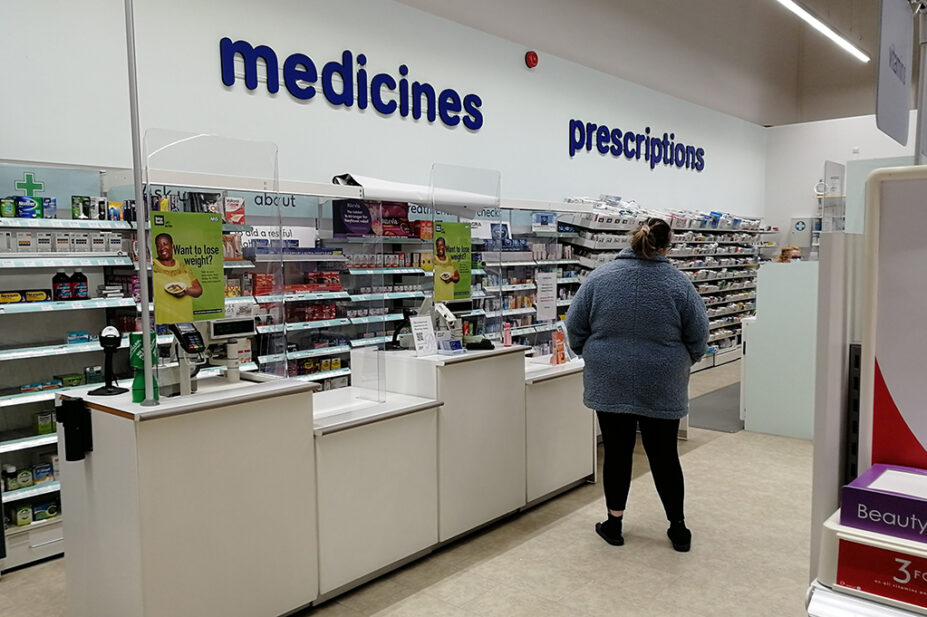
Shutterstock.com
Almost three-quarters of pharmacy staff have said patient safety is at risk from medicine supply chain issues, according to responses to a survey carried out by Community Pharmacy England (CPE).
In response to CPE’s pharmacy pressures survey 2025 — to which more than 1,600 pharmacy team members, and owners of more than 4,300 pharmacies in England responded — 73% of pharmacy staff reported risks to patient health caused by delays in accessing medicines. This is up from 51% in 2022 — the first year the pressures survey was conducted.
The survey also revealed that supply issues are more frequent than previously, with the proportion of pharmacy staff reporting daily problems rising from 67% in 2022 to 87% in 2025.
In addition, 86% of pharmacy owners said shortages were leading patients to visit multiple pharmacies in search of their medicines.
Of total respondents to the survey, 95% said patients were being inconvenienced by ongoing medicines shortages, while 96% said patient frustration was a common consequence of supply issues. In addition, 79% of respondents reported incidents of patient aggression when medicines were unavailable or delayed, up from 75% in 2022.
Almost three-quarters of pharmacy owners (74%) reported that their staff are having to spend more time on procuring medicines than ever before. Around four in ten (39%) pharmacy team members said they spend one to two hours daily sourcing alternative medicines, while 26% reported spending more than two hours each day on this task.
Commenting on the survey findings, Janet Morrison, chief executive of CPE, said: “Medicine supply issues remain a daily reality across the country: this has become a distressing new normal for community pharmacies and their patients alike.
“Our survey results suggest a system that is stuck at breaking point, with yet more evidence that medicine supply problems haven’t disappeared. It will take sustained action to resolve this crisis and ensure patients can access the medicines they need, when and where they need them.”
Olivier Picard, chair of the National Pharmacy Association, said: “As this survey shows, pharmacies are at the sharp end of medicines shortages and frequently have to turn away distressed and frustrated patients.
“It is particularly frustrating for pharmacists to be unable to meet a clear need when they have a perfectly safe and effective solution in their pharmacy already.
“The government must allow pharmacists — who are highly trained healthcare practitioners — to use their professional judgment to supply an appropriate alternative medication when the prescribed version is unavailable.”
Louise Ansari, chief executive of Healthwatch England, said: “These findings are worrying and reflect what patients tell us about the distress and frustration that medicine shortages cause.
“International supply issues will take time to fix, but the NHS can take immediate steps to reduce the impact on patients who cannot get hold of their medication.
“The government should also consider other actions, such as giving pharmacists greater flexibility to substitute medication, provided it is safe to do so, and the patient agrees.”
Rachel Power, the Patients Association chief executive, described the figures from the CPE survey as “a giant red flag for patient safety”.
“Behind each of these figures is a real person, left without the treatment they need,” she said. “For many, delays in accessing vital medication can cause anything from a worsening of symptoms to life-threatening consequences.
“People rightly expect that if they’re prescribed medication, they’ll be able to get it. We urgently need transparent reporting on actions planned and taken, who is accountable, and when patients can expect these dangerous shortages to be eliminated.”
On 30 June 2025, Healthwatch England published its own poll of more than 7,000 adults who use pharmacy services, which also highlighted issues with medicines shortages.
Almost one in four respondents (23%) to the poll, published on 30 June 2025, said they had been unable to get their medication during 2024 because their pharmacy had run out, compared with 24%) in 2023.
The results also showed that nearly half (45%) of respondents reported experiencing an issue getting their medication, including:
- Prescription delays: 19%, up from 12% in 2023.
- Prescription errors: 18%, up from 14% in 2023;
- Affordability concerns: 5%, up from 2% in 2023.
- Unexpected pharmacy closures: 9%, up from 7% in 2023.
- Permanent pharmacy closures: 3%, up from 1% in 2023.
A spokesperson for the Department of Health and Social Care said: “This government inherited ongoing global supply problems, but we have robust measures in place to mitigate disruption for patients.
“We are working to build the resilience of medicine supply and prevent future disruption as we get the NHS back on its feet.
“We have recently agreed an extra £617m of funding over two years with CPE to help community pharmacies, support the sector and provide patients with greater services closer to home.”


